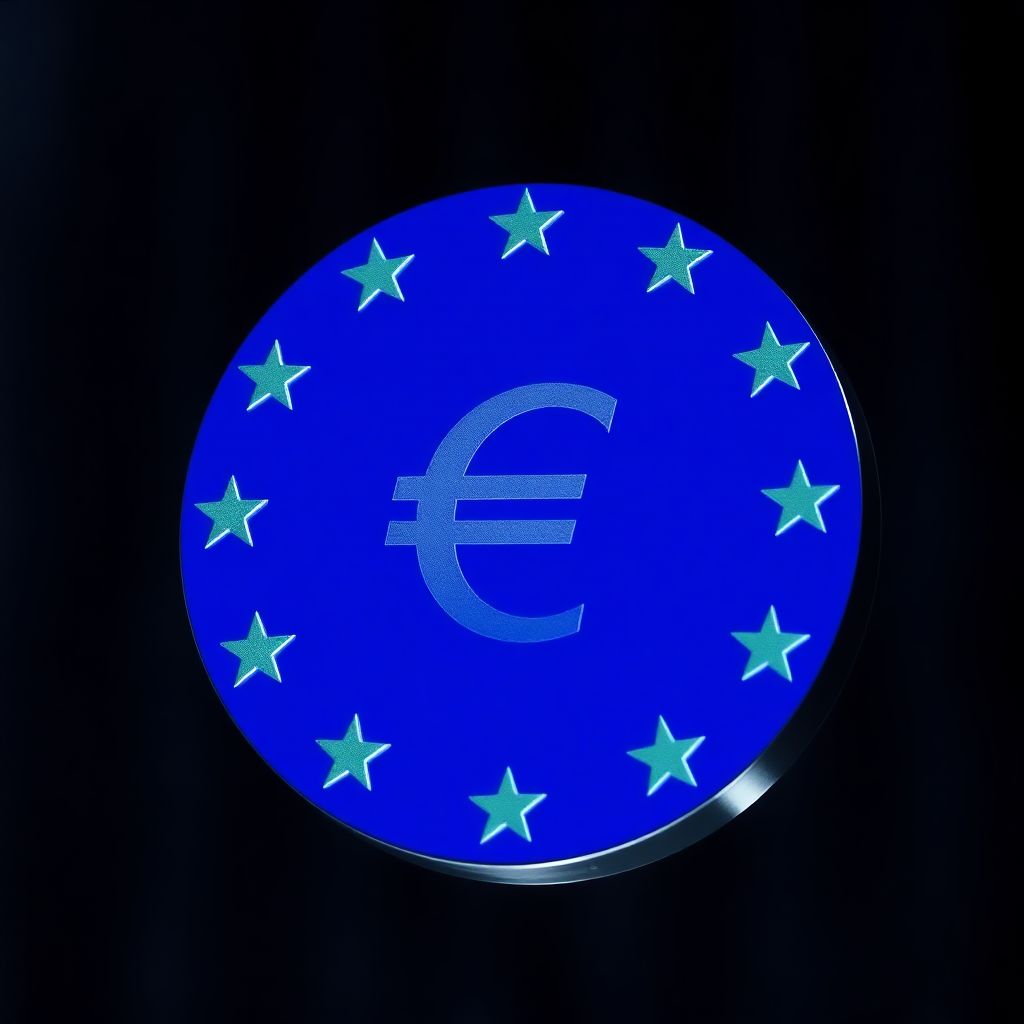Christine Lagarde, President of the European Central Bank (ECB), recently reaffirmed the institution’s commitment to launching a central bank digital currency (CBDC) known as the digital euro. Describing the initiative as a “symbol of trust in our common destiny,” Lagarde portrayed the digital euro not only as a modern financial tool but also as a unifying element for the European Union. Her statement emphasized the ECB’s intention to complement traditional banknotes with a digital alternative that can be widely used for online transactions across the Eurozone.
In her comments, Lagarde underlined that physical cash would not disappear but would coexist with the digital euro. According to her, the digital version of the euro is intended to serve as a secure and reliable payment method in an increasingly digital economy. The ECB aims to provide a state-backed alternative to private digital payment systems, ensuring financial sovereignty and accessibility for all European citizens.
The ECB’s Governing Council has formally decided to proceed with the development of the technical framework necessary for implementing a retail-focused CBDC. If approved by EU lawmakers, the digital euro could begin its phased rollout as early as 2029. This step marks a significant milestone in the ECB’s multi-year exploration of digital currencies, which has included research, public consultations, and cooperation with technology partners.
Despite the ECB’s optimistic stance, the announcement has triggered intense criticism, particularly from the cryptocurrency community. Detractors argue that state-issued digital currencies, such as the digital euro, threaten the foundational principles of decentralized finance (DeFi) by centralizing control and enabling increased surveillance of individual financial behavior. Concerns have been raised about the potential for CBDCs to erode privacy, restrict financial freedom, and give governments unprecedented insight into personal spending habits.
This skepticism was echoed by various figures in the crypto industry and political commentators. Mert Mumtaz, CEO of Helius, dismissed the ECB’s initiative outright, advocating instead for the use of private forms of digital money. Political analyst David Thunder also warned that while a shared currency might symbolize unity, a CBDC could paradoxically undermine public trust by allowing real-time tracking of transactions.
In response to the ECB’s push for the digital euro, some lawmakers in EU member states have begun proposing legislative countermeasures. In France, Éric Ciotti of the Union of the Right for the Republic introduced a bill to prohibit the use of CBDCs within the country, arguing that such a system poses a threat to economic freedom. Similarly, Germany’s Alternative for Germany party submitted a motion urging consideration of Bitcoin (BTC) as a strategic reserve asset, positioning it as a decentralized and inflation-resistant alternative to centrally controlled digital currencies.
The debate over CBDCs reaches beyond financial mechanics—it touches on fundamental questions of governance, privacy, and economic ideology. Proponents of the digital euro claim it will bolster financial inclusion, modernize payment infrastructure, and strengthen the EU’s monetary sovereignty. Opponents, however, see it as a step toward financial authoritarianism, where governments could potentially restrict access to funds or monitor political dissent through financial channels.
Beyond ideological divides, practical concerns also persist. Critics question whether the ECB has the technical capacity to roll out a secure, efficient, and user-friendly CBDC. Issues such as cybersecurity, interoperability with existing banking systems, and energy usage remain unresolved. Moreover, the public’s willingness to adopt a government-backed digital currency is uncertain, particularly in countries where trust in financial institutions is low.
From a geopolitical standpoint, the digital euro could serve as a counterbalance to the growing influence of foreign digital currencies, including China’s digital yuan and private stablecoins like USDC or Tether. The ECB views the digital euro as essential to preserving the euro’s global relevance in an era where digital payments are increasingly dominated by non-European entities.
In addition, the ECB has stressed that the digital euro will be designed with privacy in mind. Lagarde and other officials have promised that users’ personal data will be protected, and that the digital euro will not be used as a tool for mass surveillance. However, critics remain unconvinced, pointing out that any centralized digital currency inherently allows some level of transaction visibility by the issuing authority.
There is also the question of programmability. Some experts fear that programmable money could lead to conditional spending, where governments or institutions could impose restrictions on how or when funds can be used. This potential feature adds another layer of controversy to the CBDC debate.
Looking ahead, the ECB’s path to implementing the digital euro will depend heavily on political will, technological readiness, and public acceptance. The legislative process in the EU will play a pivotal role in shaping the final form of the CBDC, including its legal framework, privacy standards, and operational model.
In conclusion, while Christine Lagarde frames the digital euro as a progressive step toward unity and modernization, the initiative faces a complex landscape of technological, political, and ethical challenges. The next few years will determine whether the digital euro emerges as a trusted public good or becomes a flashpoint in the ongoing struggle between centralized and decentralized financial systems.

